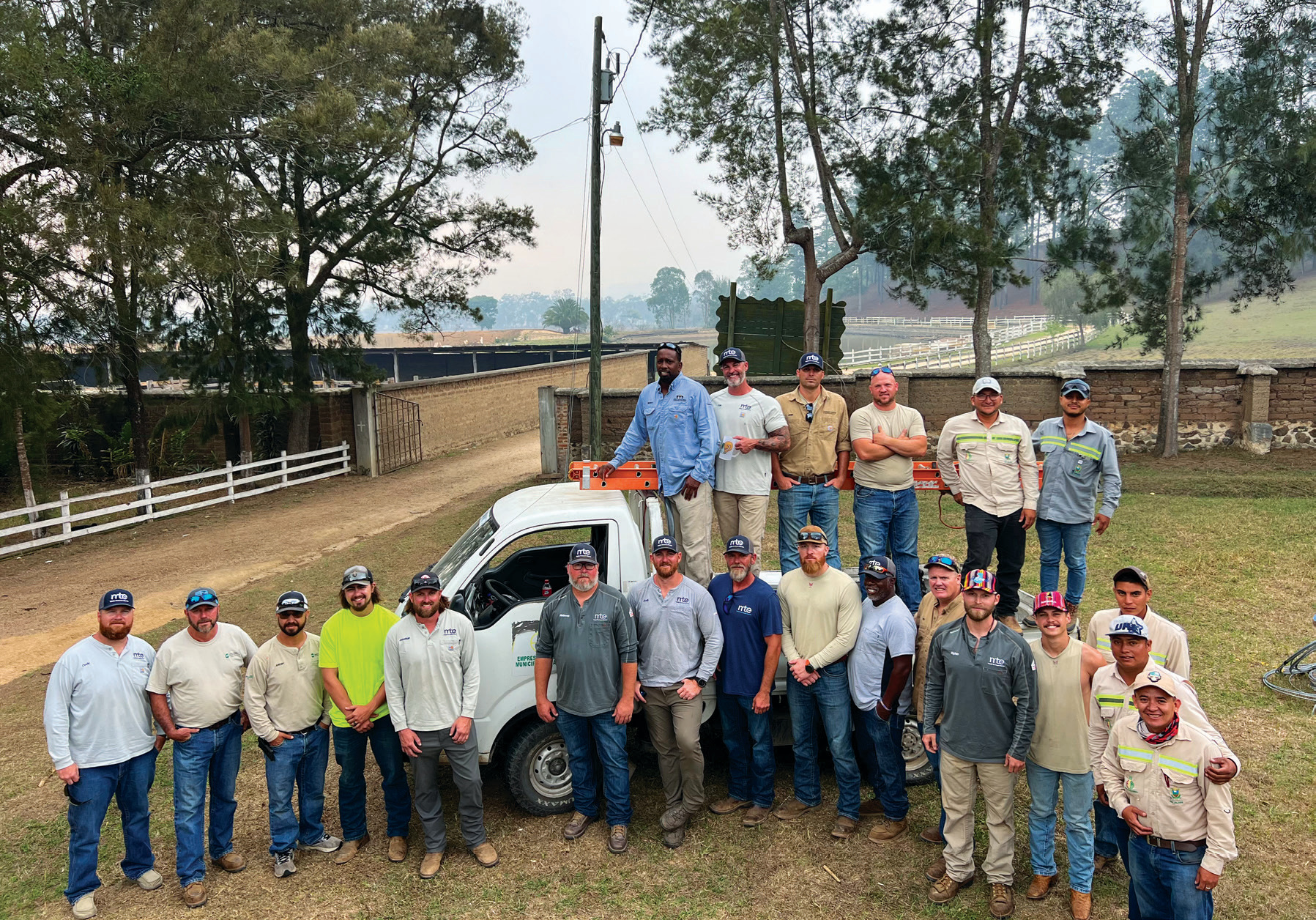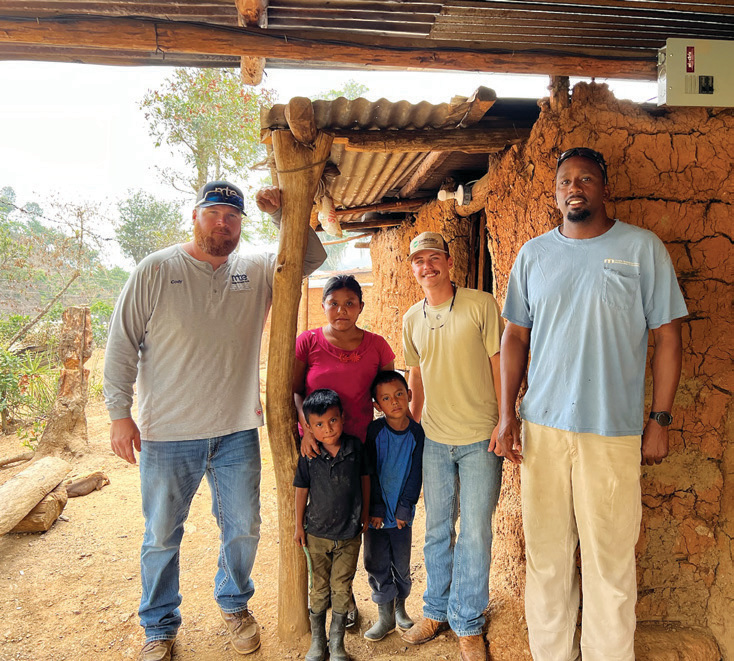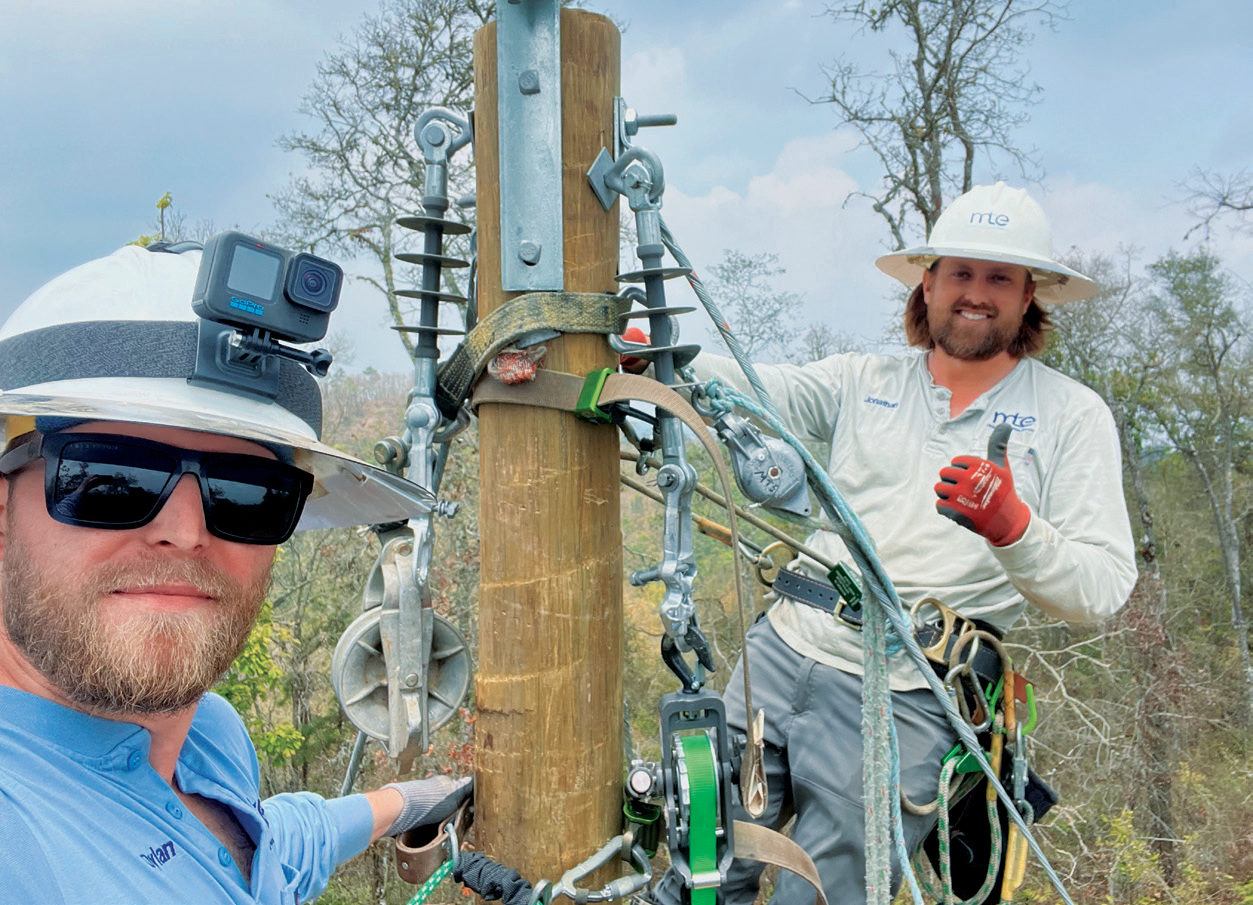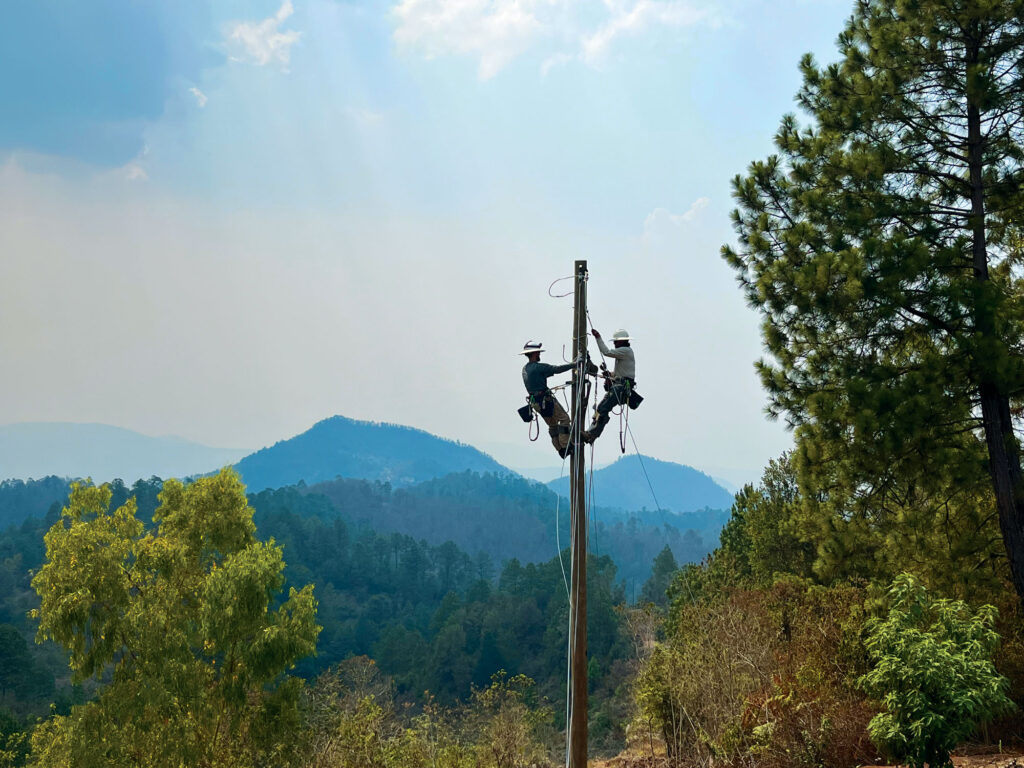21 lineworkers from Middle Tennessee Electric and Alabama Rural Electric Association of Cooperatives have made their way back to the States after a trip of a lifetime to Guatemala. The men flew four and a half hours to get there and spent more than two weeks in constant work, but what they left behind was a timeless gift.
“She said over and over that we were heaven-sent,” said Burnes Lyons, 28-yearlong journeyman lineworker from MTE, about getting the lights turned on for one of the women who worked at the church in the village.
NRECA International
The National Rural Electric Cooperative Association International works to provide access to safe, reliable and affordable electricity. Since 1962, the association has supplied a better quality of life for more than 220 million people and established 250 electric utilities and electric cooperatives in 48 countries, with the latest development being in Las Peñas, Guatemala.
Electric cooperatives across the state of Alabama helped raise the money and flew 11 lineworkers to help complete the job. MTE also participated and sent 10 employees along, marking the first trip of the kind for the Volunteer State.
“We have been wanting to make an NRECA International trip for many years,” said Chris Jones, MTE president and CEO. “We’re honored to be the first from Tennessee.”
Challenge accepted
While the reward was indescribable for all on the trip and those in the village, it was no easy task.
“The purpose was to get power to a village of people who have never had power and were never going to have the option to get power unless a project like this came through,” said Jonathan Prichard, a nearly 10-year lineworker from MTE who volunteered on the trip. However, Lyons said when the team first arrived and even after the first days there, no one thought this would be possible.
“Nobody wanted to give up, but in the back of our minds, everyone was thinking that we’re not going to get these lights on,” Lyons said.
Brad Nattress, a foreman with MTE, has been in the business for 24 years. He said he took the opportunity to lead the crew because he wanted to use the skills he had learned to help those in need. He soon learned that they had to take it one day at a time.
“The terrain, the planning and the communication were really different,” Nattress said. “Anytime you tried to plan something, it seemed like it went south, and you had to start again.”
Time traveling
The crew stayed in Jalapa. The village they were working in, though, was a 30-minute drive from the bottom of the mountain all the way to the last hut. Prichard had never traveled out of the U.S. and said he had never been anywhere like Las Peñas that was so far in the past.
“I would say it was almost like time traveling — no running water, no electricity and they lived in nothing much more than mud and stick shacks,” Prichard said. “It was amazing to see.”
Las Peñas did have its own local electric company, but the way it operated was different than what MTE’s crew was used to, especially with having no access to digger and bucket trucks. The crew even had to dig holes and set poles by hand.
“It was pretty much the old-school way of everything,” Nattress said. MTE did bring necessities, though, including hand tools and climbing gear.
Climbing for electricity
On top of the different work style, the lineworkers were experiencing terrain and elements they had never worked in before, and no amount of exercise or water could have prepared them for it.
“They warned us about the elevation that was pretty high up in the mountains and that there would be a lot of hiking up the ravines and down the hillsides,” Prichard said. “Some of the hillsides, you had to crawl on all fours to get up.”
The challenge was almost too much for Lyons, who is a few years out from retiring, but he wanted to use this opportunity as an exclamation point on his career.
“It got to the point where the steep hills and air changes made me think I was going to have a heart attack,” Lyons said. “I really began to question my volunteering at this point, but I saw some of the team coming over the mountain to help, and I knew then the meaning of, ‘The cavalry has arrived.’”

The average elevation for Jalapa, where the crew stayed, is well over 4,000 feet above sea level, and the lineworkers said their drive to the village continued to go up. To put that number in perspective, Tennessee’s average elevation is just 900 feet, with the highest point being 6,643 feet above sea level at Clingmans Dome.

Thankfully, Mother Nature cooperated even during Guatemala’s rainy season.
“It was humid, muggy and dusty, but temperature-wise, it was as good as Tennessee (in May),” Nattress said.
Let there be light
Despite the challenges and learning curves, light was brought to Las Peñas. The team, along with the local electric company, built the primary power line up the mountain. They did so by setting poles, running and pulling wire across giant ravines, and setting and running wire from the transformers to the huts. The wire ended up being 4.5 miles long up a mountain, providing electricity to 17 huts and a church.
“Everybody got four lightbulbs, two light switches and two receptacles,” Nattress said.
Accomplishing this mission and simply making the trip was a proud moment for everyone at MTE.
“They brought everything MTE is about — electricity, service and care for community — to the good people of this area,” MTE CEO Jones said. “They brought light in every sense of the word.”
Meeting the goal was Nattress’ favorite part of the trip, especially since they wondered whether turning the lights on was going to be possible.
Prichard’s favorite part was a tie between the work and the beauty. “It isn’t normal for us to be running wire across giant canyons,” Prichard said. “It was neat to see their scenery. I mean, we were up in the clouds!”
For Lyons, the experience was something he will never forget. “Just to see the smiles on their faces when we were able to turn the lights on,” Lyons said. “We were able to give them something they would have never had, and that was the most rewarding thing.”





1 Comment
We really appreciate the volunteers who helped this small village in Guatemala. Thank you Ms. Weaver for writing their story and the Tennessee Magazine for including it. We all need to hear stories of the good that’s going on.